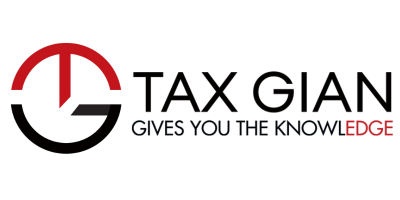Corporate tax consultants in Dubai can help you further with corporate tax accounting requirements. Read ahead to gain more insights:
Accepted Accounting and Reporting Standards
As per the UAE Corporate Tax Law, the Taxable Income of each Taxable Person needs to be determined separately, on the basis of properly prepared, standalone (unconsolidated) Financial Statements for financial reporting purposes in accordance with the Accounting Standards accepted in the UAE. The following are the accounting standards to be used for corporate tax in the UAE:
International Financial Reporting Standards
International Financial Reporting Standards (IFRS) is an accounting standard accepted in the UAE. Taxable persons can use IFRS for the purpose of corporate tax. Corporate tax consultants in Dubai can assist businesses in preparing the books of accounts as per the IFRS.
Using IFRS for SMEs
The UAE corporate tax law allows the use of IFRS for SMEs if the taxable persons’ revenue doesn’t exceed AED 50 million in a Tax Period. However, taxable persons are not allowed to use IFRS for SMEs as the default Accounting Standard.
IFRS for SMEs can be used only when the Revenue requirement is met. If the requirement is not satisfied, taxable persons are required to use IFRS. Consultants providing corporate tax services in Dubai can help you choose the accounting standard matching your revenue.
Accounts not prepared under IFRS or IFRS for SMEs
Taxable Persons must use IFRS or IFRS for SMEs (as applicable) to calculate Taxable Income under the UAE corporate tax.
However, they can use different accounting standards for purposes other than Corporate Tax as long as all relevant calculations and reporting are performed and provided using IFRS or IFRS for SMEs for Corporate Tax purposes. Exempt persons can use other accounting standards.
However, if an Exempt Person has Business or Business Activities treated as a separate taxable business as per the Corporate Tax Law, the use of IFRS or IFRS for SMEs is mandatory for preparing the Financial Statements for that taxable activity.
Financial Statements of a Tax Group
Tax groups are required to prepare consolidated Financial Statements to determine the Taxable Income of the Group. They can use IFRS or IFRS for SMEs, depending on the revenue threshold. Corporate tax services providers in Dubai can assist taxable persons in preparing the financial statements of a tax group.
Audit Requirement for Financial Statements
Taxable Persons with a revenue of more than AED 50 million during the relevant Tax Period and all Qualifying Free Zone Persons (irrespective of the level of Revenue) are required to prepare and maintain audited Financial Statements. The financial statements audit should be carried out by a UAE-registered auditor.
Accounting Methods for UAE Corporate Tax
The UAE corporate tax law allows the use of accrual basis accounting and cash basis accounting. The conditions for using such accounting methods are listed below:
Accrual Basis of Accounting
In the Accrual Basis of Accounting, revenue and expenditure are recognised when they are earned or incurred, not necessarily when payments are received or made, or invoices are received or sent. Under the Accrual Basis of Accounting, revenues and expenses are included in Taxable Income in the Tax Period in which they are earned or incurred.
Cash Basis of Accounting
The UAW corporate tax law allows taxable persons to prepare their Financial Statements using the Cash Basis of Accounting under the following conditions:
- Revenue should not exceed AED 3 million within the relevant Tax Period; or
- In exceptional circumstances and pursuant to an application submitted by the Person to the FTA
If the Revenue does not exceed AED 3 million, the Person can apply the Cash Basis of Accounting without needing to submit an application to the FTA. Corporate tax consultants in Dubai can assist taxable persons in preparing financial statements using a Cash Basis of Accounting.
Corporate Tax Consultants in Dubai can Assist You
Understanding acceptable accounting standards and methods is essential for businesses to ensure corporate tax compliance in the UAE. However, seeking professional assistance is key to properly complying with the UAE corporate tax law. Tax Gian, a brand of Jitendra Tax Consultants (JTC), can help you navigate all issues related to corporate tax.
We are one of the top corporate tax consultants in Dubai with a team of highly qualified tax experts at your service. Tax Gian can guide businesses on all aspects of the UAE corporate tax law including tax registration, formation of tax groups, transfer pricing etc. Call us today to avail yourself of comprehensive corporate tax consulting services in Dubai, UAE.



